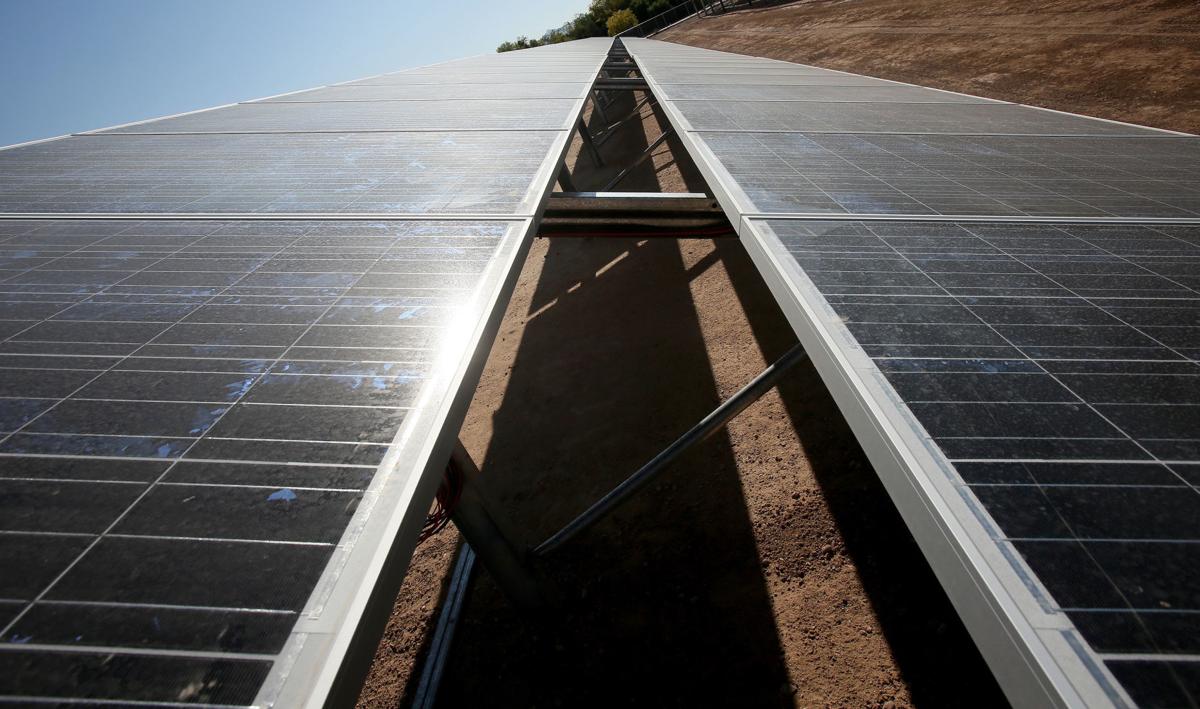PHOENIX — State senators voted Thursday to put a measure crafted by the state’s largest electric company on the November ballot to compete with a far more stringent initiative on renewable energy.
The 16-11 party-line vote in the Republican-controlled chamber came over objections from Democrats who said the House measure, dubbed the “Clean and Affordable Energy for a Healthy Arizona Amendment,” is designed solely to confuse voters with the “Clean Energy for a Healthy Arizona Amendment” being financed by California billionaire Tom Steyer.
Sen. Steve Farley, D-Tucson, called the measure “a cynical maneuver to try to confuse voters at the ballot so that they think this is the real clean energy initiative as opposed to one that’s being run by advocates at the same time.”
But Sen. John Kavanagh, R-Fountain Hills, said the aim is to give voters a choice.
On the surface, both measures require utilities to generate half of their energy from renewable sources like solar, wind, biomass and geothermal by 2030. The balance can come from other sources including nuclear and fossil fuels like coal and natural gas.
By comparison, existing Arizona Corporation Commission rules set a standard of 15 percent of power from renewable sources by 2025.
But there’s a key difference between the two ballot measures. House Concurrent Resolution 2017, put together by Arizona Public Service Co., allows utility regulators to ignore the mandate if they conclude it would “adversely affect” the affordability or cost of electric bills, the reliability of the electrical grid, or “the well-being of this state.”
Farley called that a “poison pill.”
“It basically gives the Corporation Commission veto power,” he said. And Farley pointed out that veto power can occur only according to that specific list of factors and not others.
“It doesn’t consider the cost of what happens when our climate is warmed to such an extent planes can no longer take off or land from Sky Harbor (airport) and what that might do to our economy,” he said.
Kavanagh had a different take on the issue.
“One man’s poison pill is another man’s safety valve,” he said.
Kavanagh said the language allows the commission to override the mandate in order to protect Arizona consumers if utilities have to “scramble” to sign contracts for renewable energy.
“There would be such demand that the price of renewable energy would skyrocket because the sellers would know that the utilities are under desperate orders to get to that level,” Kavanagh said.
He said those higher costs would hit the poor harder because they spend a larger share of their income on utilities.
Sen. Martin Quezada, D-Glendale, countered that “voters already have a safety valve.”
“It’s voting ‘no,’ ‘’ Quezada said. “If they feel that these (renewable energy) levels are unattainable, if they feel that this will be damaging to the grid, if they feel like this will hurt communities of color and low-income communities and want another option altogether, they can simply vote ‘no.’ ‘’
The 16-11 vote sends the measure to the House. If approved there, it would go directly to the ballot, as the measure does not require the signature of Gov. Doug Ducey.
Sen. Bob Worsley, R-Mesa, did not participate in the debate or vote as he owns a biomass power plant near Snowflake that converts wood waste to power.





